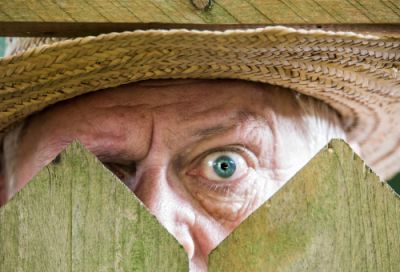 Ever wonder where the phrase “green-eyed monster” comes from? The green-eyed monster refers to someone who is motivated by jealousy and envy. The first recorded use of the phrase is from Shakespeare. During the Renaissance, it was common to associate feelings with colors. Envy and jealousy are associated with green and yellow, most likely because green is the color of bile.
Ever wonder where the phrase “green-eyed monster” comes from? The green-eyed monster refers to someone who is motivated by jealousy and envy. The first recorded use of the phrase is from Shakespeare. During the Renaissance, it was common to associate feelings with colors. Envy and jealousy are associated with green and yellow, most likely because green is the color of bile.
The phrase occurs in two of Shakespeare’s plays. In “Othello” Iago tells Othello, “O beware, my lord, of jealousy; It is the green-eyed monster which doth mock the meet it feeds on.” It’s rather ironic, because Iago is warning Othello not to trust Othello’s wife, when it’s actually Iago who cannot be trusted.
The first time Shakespeare uses the phrase “green-eyed jealousy” is in “The Merchant of Venice.” Portia states, "How all the other passions fleet to air, as doubtful thoughts and rash embraced despair and shuddering fear and green-eyed jealousy!"
What Is Envy?
Envy is defined as the “desire to have a quality, possession, or other desirable attribute belonging to (someone else).” Jealousy is the reaction you have to feeling like you’re losing something (or someone). Psychology Today describes the difference between envy and jealousy using people. Envy is between two people. One person feels as if they’re lacking what the other has. Jealousy is between three people. The first person is afraid of losing the second person to the third person.
Envy is a powerful motivator. Some psychologists suggest that there are two kinds of envy. The first, malicious envy, is the one that leads to sin. Envy gets into your mind and causes you to want the person who has what you want to suffer. Cinderella’s stepmother is envious of Cinderella’s beauty and charm. The stepmother goes to great lengths to prevent Cinderella from meeting the prince. In “The Lion King,” Scar is envious of Mufasa and kills him to gain the kingdom.
Benign envy can have positive effects. It’s a non-hostile kind of envy. Instead of wanting bad for the other person, benign envy causes you to be better. Say your friend got an iPhone, and you really want an iPhone, too. If you acted with malicious envy, you might steal your friend’s phone to have it yourself. Benign envy motivates you to work harder and save your money to get the phone.
Envy in Christianity
Envy is one of the oldest motivators in the Bible. Cain envied his brother, Abel, because God favored Abel’s sacrifice. Cain killed Abel out of envy. “Thou shall not covet” is one of the 10 Commandments. In Dante’s “Purgatory,” sinners who are guilty of envy have their eyes sewn shut with wire. This is because they have received pleasure from another’s misfortune.
Abraham sent Hagar and his son out into the wilderness over Sarah’s jealousy. Jacob’s sons sold their brother, Joseph, into slavery out of jealousy. Jacob’s wives envied each other. Leah could have children; Rachel couldn’t. The Pharisees and Sadducees were jealous of Jesus and the apostles for their miracles and healings.
What Is the Real Sin of Envy?
It’s likely you’ll be tempted with envy at some point. Benign envy doesn’t usually cause sin. It’s the malicious envy that sows discord and creates bitterness inside you that is the sin. Rather than denying that you’re envious, admit it. Most people don’t admit that they are envious because it is considered such a bad thing. When you let envy fester, you can hurt someone you love by doing something that could have even greater consequences.
By admitting envy, you can deal with it. Envy wastes your time, so spend your time being thankful for what you have. When you want something, work for it. Don’t spend hours worrying over what you don’t have.



